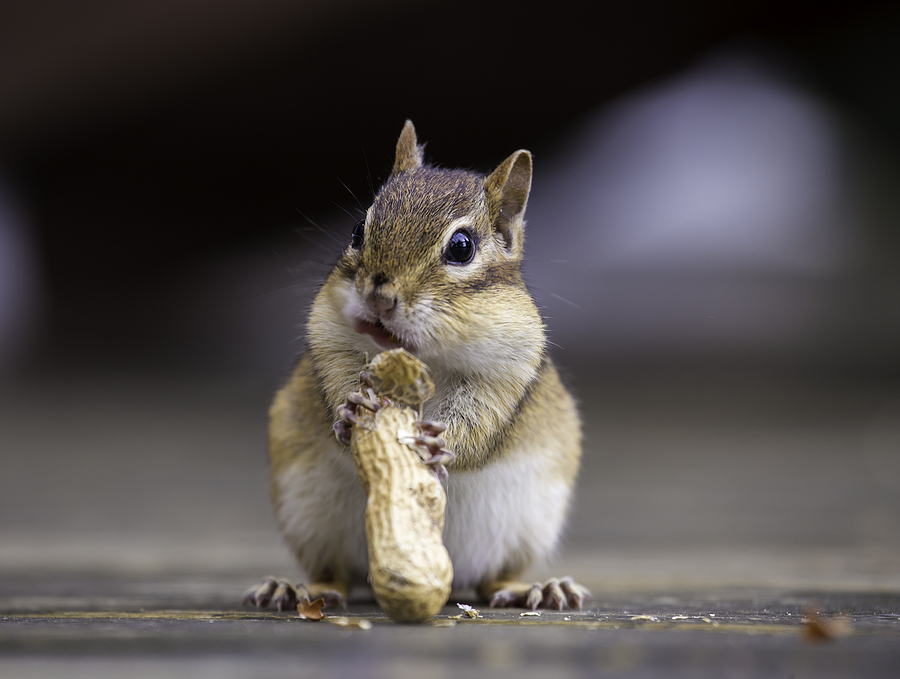Welcome to our comprehensive guide on battling the backyard bandits – yes, we’re talking about chipmunks. These tiny creatures, while undeniably adorable, can cause quite a bit of havoc in your garden or even inside your home. From digging holes in your lawn to squeaking away in the walls, chipmunk control can be a challenging task. But worry not!
This blog post is designed to help you understand how chipmunks operate and explore the most effective chipmunk repellents available. We’ll delve into practical, humane ways you can prevent these small creatures from turning your backyard into their personal playground. So, let’s jump right in and learn how to keep these cheeky chipmunks at bay.

Understanding Chipmunks
Before we dive into the various methods of chipmunk control, it’s essential to understand these animals’ behavior and habits. Chipmunks are small, ground-dwelling rodents that belong to the squirrel family. They are commonly found in North America and come in a variety of colors, including brown, red, grey, and even black. These tiny creatures are highly adaptive and can be found living in a variety of habitats, including forests, woodlands, and suburban areas.
Chipmunk Behavior
Chipmunks are known for their playful nature and love for digging and burrowing. They have long front teeth that continuously grow throughout their lives, making them expert diggers. They use these sharp teeth to create burrows and tunnels in the ground, where they store food and shelter themselves from predators. In addition to digging, chipmunks are also excellent climbers and can easily scale trees and bushes with their sharp claws.
Chipmunk Diet
Chipmunks are primarily herbivores, meaning that they mainly eat plants. They have a diverse diet that includes seeds, nuts, berries, fruits, and even insects. They are also known to store food for the winter months and can be seen scurrying around with their cheeks full of provisions to hide in their burrows.
Breeding Habits
Chipmunks typically mate twice a year – once in early spring and again in mid-summer. After a gestation period of 31 days, the female chipmunk gives birth to a litter of two to eight babies. These baby chipmunks grow quickly and leave their mother’s burrow within six weeks. However, they remain close to their mother until they reach sexual maturity at around one year old.
Signs of Chipmunk Infestation
Knowing the signs of a chipmunk infestation is essential in controlling these critters. Some common signs of chipmunks in your backyard include:
Holes and tunnels – Chipmunks love to dig, so seeing holes and tunnels in your lawn or garden is a tell-tale sign of their presence. These holes are typically small (around two inches in diameter) and have a neat, rounded shape.
Chewed plants and seeds – Since chipmunks are herbivores, they often feed on plants, fruits, and nuts in your garden. If you notice chewed or missing leaves, fruits, or seeds from your plants, it’s a good indication that chipmunks may be to blame.
Squeaking or scratching noises – If you hear squeaking or scratching sounds coming from your walls, ceilings, or attic, it’s likely that a chipmunk has found its way inside your home.
How to Get Rid of Chipmunks
Now that you know how to identify a chipmunk infestation let’s explore some effective ways to get rid of them. Here are our top three recommendations for humane chipmunk control:
1. Natural Repellents:
There are several natural repellents that you can use to deter chipmunks from your property. These include:
Plants – Certain plants like daffodils, marigolds, and geraniums have a strong scent that chipmunks dislike. Planting these around your garden or yard can act as a natural deterrent.
Predator urine – You can purchase predator urine, such as that from foxes or coyotes, and spray it around your property. The scent of these predators will scare away chipmunks.
Hot pepper spray – Mix some hot pepper flakes with water and spray it on plants or areas where you’ve seen chipmunk activity. The spicy scent will repel them.
2. Physical Barriers:
Another effective method of chipmunk control is using physical barriers to block their entry points. Some examples include:
Wire mesh – Place wire mesh around the base of plants or trees to prevent chipmunks from digging and entering.
Fencing – Installing a fence around your garden or yard can also keep chipmunks out. Make sure the fence is at least three feet high and buried several inches into the ground to prevent them from burrowing under it.
Seal cracks and openings – If you’ve noticed chipmunks entering your home through cracks or openings, seal them up with caulk or mesh wire.
3. Trapping:
If natural repellents and barriers haven’t worked, trapping is another method you can try. Make sure to hire a licensed wildlife removal and control company that uses humane traps and releases the chipmunks far away from your property.
In Summary
Chipmunk control can be a daunting task, but with the right knowledge and methods, you can effectively deter these backyard bandits. Remember to always opt for humane methods of repelling or removing them and enjoy a peaceful, chipmunk-free environment.
We hope this comprehensive guide has provided you with valuable insights and tips for battling these cute but mischievous creatures. Contact Budget Animal Removal at 615-337-9165 for TWRA licensed and insured Nashville, Tennessee animal removal for animal moles and more. We serve commercial clients too.
Related Posts:
The Benefits of Feeding Wild Chipmunks in the Wintertime
3 Ways to Protect Your Bird Feeders From Squirrels and Chipmunks
Common Household Ingredients That Will Repel Nuisance Wildlife
